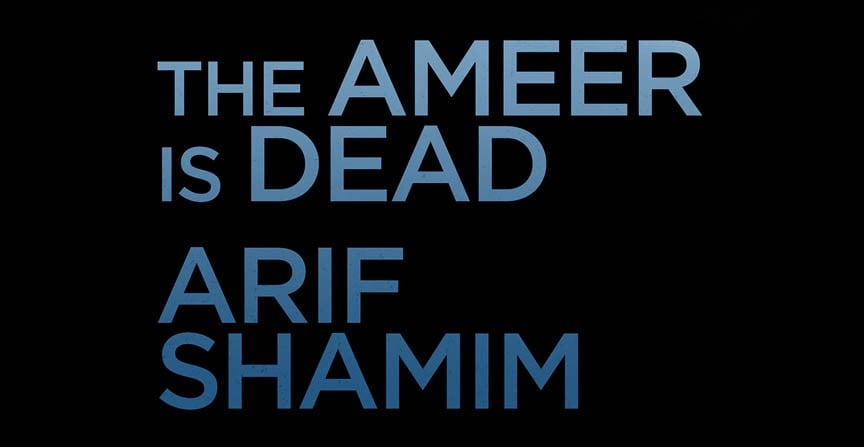
A promising debut novel that makes sense of the perpetual and senseless violence around us

It must require some courage to construct a novel around the ‘war on terror’ in a now hackneyed post 9/11 setting. But to begin it in the heart of Waziristan soon after a drone attack on a Taliban ameer perhaps needs more than courage. Arif Shamim, a BBC journalist based in London who has spent a good early part of his life in Lahore, seems adamant on telling a story that has not been told before.
The readers of this novel in Pakistan are all too familiar with incidents of terrorism of all hues, to the extent of staying indifferent if they happen in a remote place and only vaguely attentive if they take place anywhere close by.
At a time when they have lost all interest in the military operations in tribal areas and even in their civilian parallels in the major cities, in comes a novel that takes one straight to a sort of control room where uniformed officers are charged with the task of listening to telephone conversations -- "to intercept the telephonic messages of the Taliban militants" -- and gauging all their terrorist plans through them.
The interest is ignited from the word go, because that’s a territory the readers haven’t treaded before. There are many people in the house in Sararogha where the ameer is droned, and that’s where the author picks his characters whose lives unfold gradually.
The next 350 pages are much easier to scroll down in the only available online version, as the fascinating mental and physical journeys of the four main characters are picked up, one by one, and narrated in detail. The perpetual and senseless violence starts making sense as one reads how these characters from disparate backgrounds end up in the melting pot called Fata.
Read also: Interview with the author
Nothing could have better explained the ‘lunatic fringe’ for the outside world than fiction. It’s just that while reading the action, the names of a few people and places make you forget where fiction ends and reality begins. The ordinary lives, the extraordinary moments within those lives and the ennui that drew these people to lead a life of this kind only expose the complexity of the problem.
While there is absolute rejection of the violence inflicted on innocent lives in the name of terrorism, the conflicts, contradictions and doubts in the characters’ minds kind of redeem each perpetrator. This redemption seems more plausible when their actions are pitched against the larger context; then, their actions don’t even appear as a conscious choice.
The ameer’s compunctions are manifested physically, in the form of a constant itch at the back and a tailbone pain; it could also be read as a curse of God. Here it reminds one of the curse faced by Ziaul Haq of The Case of Exploding Mangoes, at a place on his body not far from Ameer Nusrat’s tailbone.
Apart from all that The Ameer is Dead achieves as a novel, there is experimentation with form largely to keep the curiosity alive. The date, August 8, 2010, keeps recurring throughout the novel, with different people uttering different things in the aftermath of the drone attack on the ameer. The reader does not get to know if the ameer had actually died in the attack or not, bringing to mind the death of Mullah Omar whose death was kept from the world for nearly two years.
Other than that, the ending is stated right in the beginning and how the characters came around to that end is what the novel is all about. When journalists turn to fiction, they don’t leave anything to chance; so the most important missing link in the terrorism story, the money trail, is weaved into the story too.
The violence has been described in great detail, with cold precision, with visible consequences for the characters especially in shaping their psyche and decisions. The readers in this part of the world may have become used to imagining scenes of destruction after a drone or a bomb, but never quite the imagery like: "the sight of the charred body parts of his parents and the image of a black crow picking at his eye of his dead, young sister had never quite left Ajmal Khan".
This is a promising debut novel that should be read widely. That it is available online should make it more and not less accessible. At a few places, I feel as if the language of the setting and characters is not transferred as faithfully into English as it should have. A more ruthless editor could have taken care of that.
The Ameer is Dead by Arif Shamim is exclusively available on www.juggernaut.in